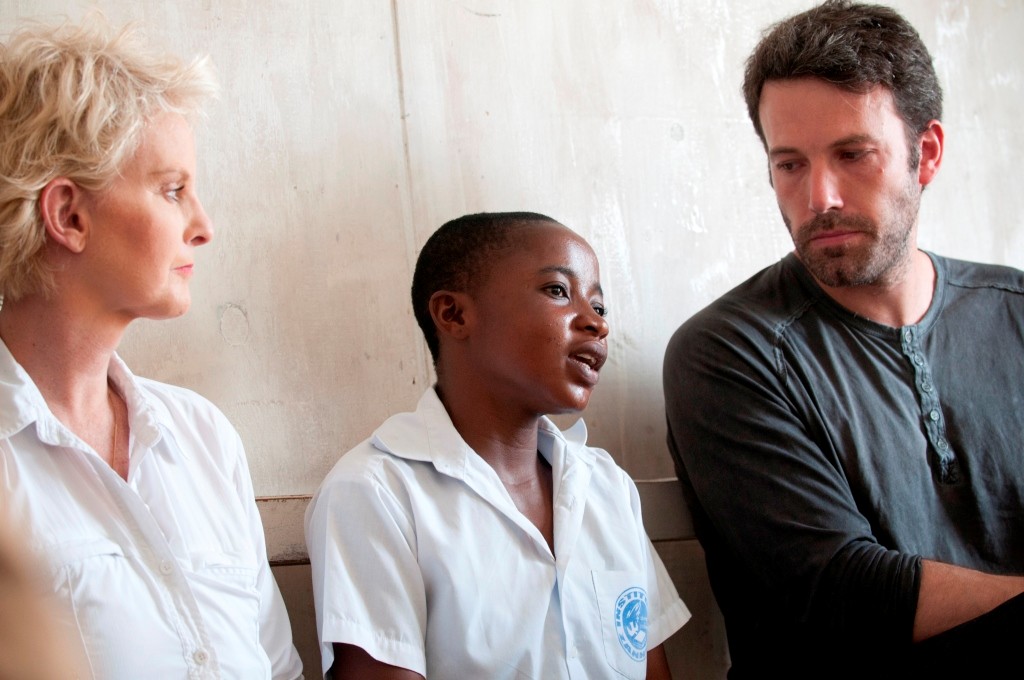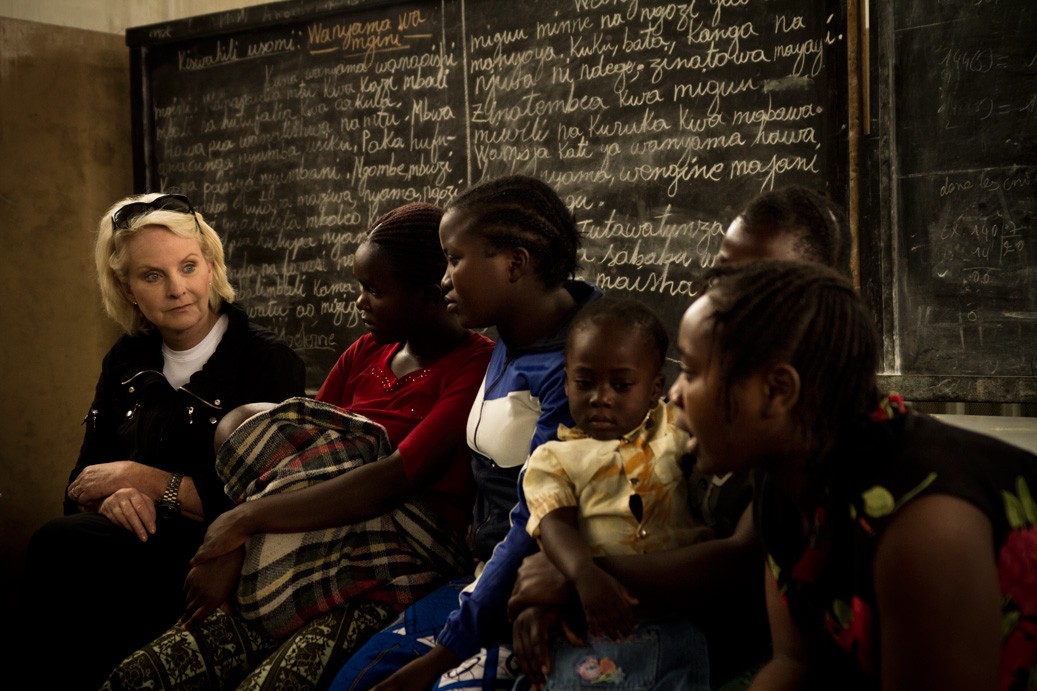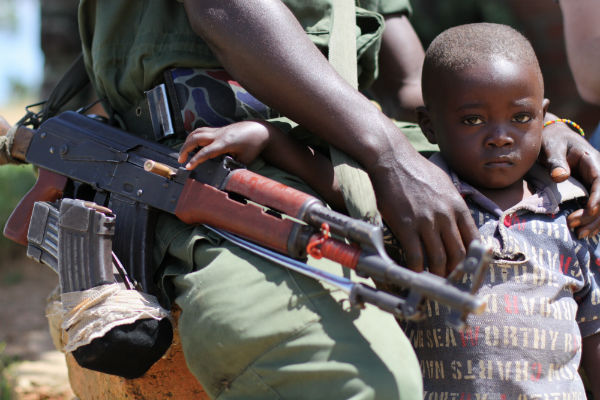
The Democratic Republic of Congo (DRC) is heading towards disaster and it need not be the case.
The reasons for the impending disaster are all too apparent. Despite calls by many -- including Eastern Congo Initiative (ECI) in a paper published in the early fall -- Congolese authorities, supported by the UN and the U.S., rushed to hold an extraordinarily ill-prepared election.

Represented by Founding Member Cindy McCain and Founding Member and CEO Whitney Williams, ECI witnessed the elections first-hand in DRC's North Kivu province and observed the remarkable will of the Congolese people who participated by the millions. ECI agrees with the general conclusions reached by the Carter Center and others, that voters at roughly 15-20 percent of polling places encountered significant difficulties in casting their votes. Credible reports of ballot stuffing, voter intimidation, lack of support for women and illiterate voters, lack of transparent reporting and other electoral violations also marred the election.
While the reasons for potential disaster are apparent, the Congolese people deserve better and steps can be taken now to mitigate a downward spiral into violence and regional instability. All available information, including preliminary tallies provided by the Congolese Electoral Commission, show that, as expected, the race is between two men, the incumbent President Joseph Kabila, and longstanding Congolese opposition figure Etienne Tshisekedi. The head of the Electoral Commission, Reverend Daniel Mulunda-Nyanga, was scheduled to announce the interim results on Tuesday; however, because of the continuing chaos surrounding the vote count, the Electoral Commission delayed Mulunda's announcement of interim results until Thursday. Taking a bit more time to try get things right is -- finally -- a small first step in the right direction.
The second important step is for the Congolese Electoral Commission to publish election results by polling place, as required by Congolese law. The Carter Center has called this "the single best means to ensure that the elections reflect the will of the people." The State Department endorsed this action in a statement released on Tuesday. When Reverend Mulunda announces the tentative results of the presidential election on Thursday, he must make public the data disaggregated by polling place to back up his totals.

The third important step is to verify the totals as announced by Reverend Mulunda. If the Electoral Commission makes any mistakes or miscalculations in its totals, these must be rapidly detected, corrected, accepted and announced by the Electoral Commission.
Once verified, the fourth crucial step is for credible outside groups such as the Carter Center to rapidly complete what we call a "fraud analysis." As they did for the 2006 elections in the Congo, independent observers need to rapidly assess whether the results remain valid when the myriad irregularities, including fraud, associated with the election are factored in. For example, if one candidate has a small, initial lead, it is plausible that once a fraud analysis is factored in, such a lead would be reduced or could even vanish.
With results provided by polling places and a fraud analysis to test the reliability of the reported results, it will be possible to determine whether there is a clear winner in the presidential race. Unfortunately, the election itself and post-election period have seen so many irregularities that another scenario must be considered: What if, after the analyses described above are completed and a clear winner does not emerge, the election is "too close to call." What should be done then? If this difficult situation arises, a credible mediation mission involving neutral arbiters from other African states is the best option to help the Congolese to find a reasonable resolution. The U.S. should also be prepared to play an active role. Whether it is the highest levels of our government, well-respected former U.S. Presidents, Members of Congress or civil society leaders, the U.S. would do well to flex our diplomatic muscle on behalf of these 70 million Congolese.
Something must be done beyond simply declaring the leader the winner, and some accommodation must be found between the two leading candidates. Regrettably, the Congolese Supreme Court, the supreme arbiter of the election under Congolese law, includes many Kabila loyalists and is not seen as a neutral party by many Congolese. A declaration by the Court by itself will be insufficient; any Court action must be bolstered by these additional recommended actions. The Court is scheduled to give its final ruling on the election outcome on December 17. It is imperative that all the actions recommended above be fully carried out before the Supreme Court rules.
In a statement released on November 29, the day after the election began, ECI recommended that the "core aspects of the democratic process, which require transparency and openness, (must be) adhered to by election officials." A credible outcome will greatly ease other efforts under way by the United States and others to help the Congolese avoid another period of destabilization and violence.
The Congolese people deserve a future where their basic rights are respected, including the right to know that their leaders reflect their electoral will. This right hangs in the balance. We hope that President Obama and Secretary Clinton will clearly state that the United States will not support a Congolese President who uses violence against civilians who seek only to exercise their voting rights. Ultimately, the U.S. must only support a Congolese President who enters office following a transparent and credible process that reflects the will of the Congolese people.
By Ben Affleck, Actor, Director and Founder of Eastern Congo Initiative; Cindy Hensley McCain, Philanthropist, Humanitarian, Founding Member of Eastern Congo Initiative and wife of U.S. Senator John McCain; and Anthony W. Gambino, Fellow, Eastern Congo Initiative.
